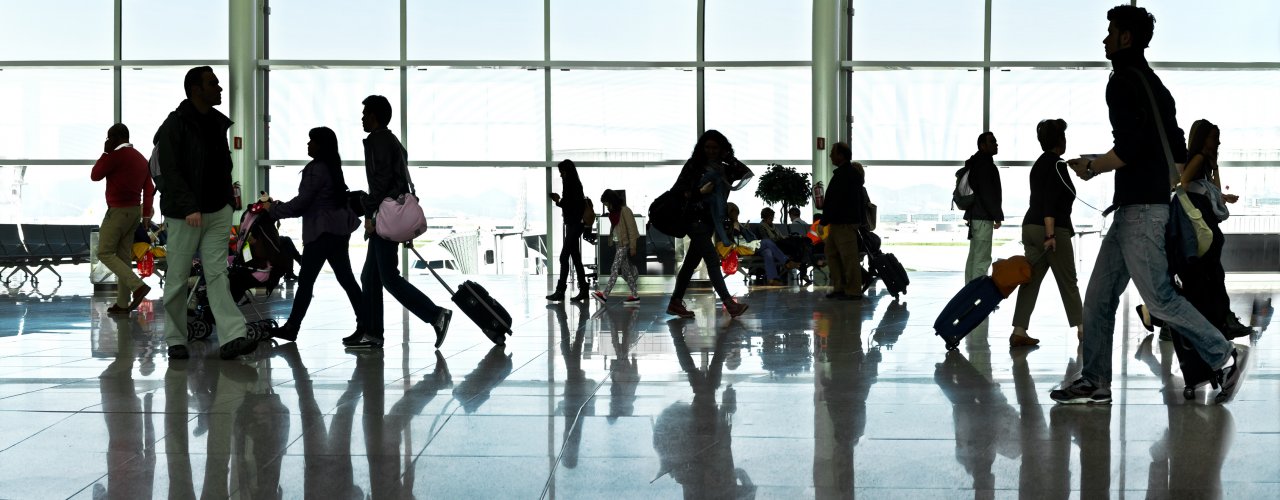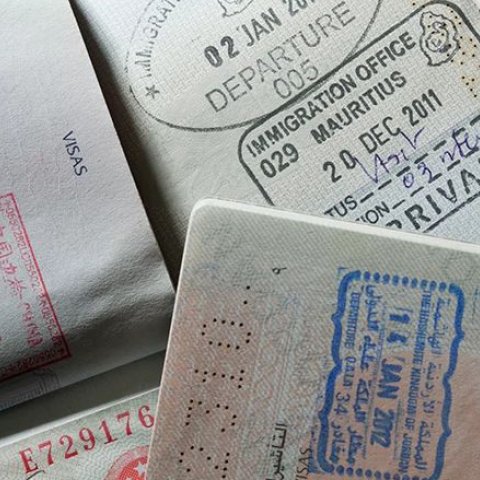Travel Planning
Preparing for international travel? How intensively you need to plan depends on your destination, your familiarity with international travel, and your anticipated activities. On this page, you'll find some things that everyone should do to prepare for a safe and healthy time abroad.
Get Started at Cornell
Register your international travel.
All students, staff, and faculty are required to have their Cornell-related international travel plans documented in Cornell’s international travel registry. By supplying the registry with your itinerary, emergency contact information, and the purpose of your travel, among other things, you supply what Cornell needs to know to provide you with resources and assistance during an incident, crisis, or emergency abroad. Register as soon as you have your travel plans in place.
Reach out to IHSS.
Cornell’s International Health, Safety, and Security (IHSS) team is always ready to discuss your travel plans and help you find valuable resources to meet your particular needs. Email us to get started.
If you need to report a non-emergency incident abroad, email us at intlsafety@cornell.edu. In an emergency, call your local "911" or International SOS at +1-215-942-8478—or use the mobile app—and reference your membership number: 11BSCA827281.
Comply with IRB and export control laws.
Ensure that your applicable research is either exempted from review or approved by Cornell's Institutional Review Board (IRB) before you begin. Comply with applicable export control laws, including all devices, software, and data that you plan to take outside the United States. Learn about Cornell Library services while you're away from campus.
Check Your Papers Before You Travel
Make sure your travel documents are valid.
There’s nothing worse than finding out at the airport that your passport is about to expire—or arriving in a foreign country without the correct visa and being sent home. Don't let it happen to you. Find out what you need to know and learn about Cornell's preferred visa vendor on our Visas, Passports, and Vaccination Records page.
Check on your health insurance.
Cornell's no-cost insurance covers accidents, sickness, and emergency care for most travelers abroad. However, this insurance does not cover routine or ongoing care, maternity care, or out-patient mental health counseling. If you expect to need this type of care while abroad, speak with your domestic insurance provider to verify coverage abroad or purchase a supplemental plan.
Notify your bank and credit card companies.
Let them know you are traveling by putting a “travel notification” on your accounts. If you don’t, they may assume international charges are fraudulent and freeze use of your card.
Prepare to Stay Safe and Healthy
Consider your health needs.
This health self-assessment is a guide for thinking about your health needs in relation to your travel plans. You can use what you learn to facilitate a discussion with your physician. Also consider visiting Travel Services at Cornell Health.
Research your destination.
Cornell's ISOS online portal is an excellent source of destination-specific information. You’ll find out above local customs, health concerns in your destination, current travel restrictions and entrance bans, and more.
Complete a predeparture orientation.
We offer two short online predeparture orientations: one to help student travelers responsibly manage their health and safety abroad, and another to guide off-campus activity leaders through their responsibilities and Cornell's expectations of their role.
Register your travel with the nearest embassy.
The Smart Traveler Enrollment Program (STEP) is a free service for U.S. citizens and nationals traveling and living abroad. Enrollment allows the nearest embassy to send you information about safety conditions in your destination and contact you in an emergency. Non-U.S. citizens should contact their embassy to inquire about similar services.
Digital Privacy and Device Searches
Learn what to expect at U.S. borders, how to assess your risk, and how to protect your digital privacy when traveling internationally.
Learn about Your Destination
Pack appropriately.
Weather patterns, cultural norms, and even how often you’ll be able to wash your clothes all impact how you should pack. Don’t wait until the last minute—and remember, if it’s really important you can likely buy it at your destination.
Learn a few words in the local language.
Making an effort to speak the language can go a long way toward showing people you respect them and understand you're a guest in their country. If you don’t speak the language, try learning "May I speak English?" and know the difference between "excuse me," "pardon me," and "I’m sorry."
Detailed Checklists
Consult these checklists for student travelers, leaders of Cornell-sponsored trips, and faculty and staff traveling on Cornell business to discover planning essentials for a safer international travel experience.
Consider Offsetting Your Travel Footprint
The Finger Lakes Climate Fund provides a climate-friendly approach to offset the environmental impact of travel with benefits to our community. Through the fund, your support promotes clean energy projects in the Finger Lakes area while strengthening our regional economy and assisting local families in need. The fund provides an easy calculator to assess the offset needed for your trip.
Please note: The Finger Lakes Climate Fund is an independent organization, and it is a personal choice to offset travel. The purchase of carbon offsets is not a reimbursable business expense for Cornell employees.








